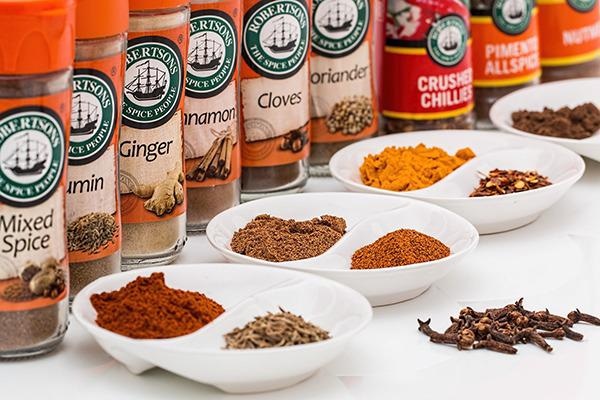The food industry is a rapidly evolving environment, driven by changing customer preferences and sustainability considerations. In the below papers, Freeman Technology customers across a broad range of applications demonstrate how powder testing can be evaluated to optimise processes and sustain product quality.

Image Credit: Freeman Technology
“On the Design of Conical Hoppers for Spent Coffee Grounds: Moisture Content and Particle-Size Effects”
L. Massaro Sousa, C. G. Schulz, R. Condotta, M. C. Ferreira | Process Design and Modeling Division, IFP Energies Nouvelles, France; Chemical Engineering Department, Centro Universitário FEI, Brazil; Drying Center for Pastes, Suspensions, and Seeds, Federal University of São Carlos, Brazil
Journal of Food Engineering | 12 February 2021
Abstract
Spent coffee ground (SCG) is a food waste with promising potential for reuse in pilot-to-industrial scale processes provided that storage and handling issues are overcome. Here some key bulk and flow properties of SCGs were determined with FT4 rheometer, for powders with different particle-size distribution (249.1 ≤ dV ≤ 583.1 μm) and moisture content (2.8% ≤ MC ≤ 62.5%). These properties were used to evaluate the design of mass-flow silo hoppers following the classical Jenike theory. The SCGs flowability worsened by decreasing dV and increasing MC, with indexes between 1.09 ≤ HR ≤ 1.92 and 2.5 ≤ FF ≤ 15.0. The minimum hopper inclination and outlet diameter ranged from 9.9° to 17.1° and 0.40–1.00 m. A sensitivity analysis for the hopper design was performed, and a densification equation was coupled to Jenike's method to ease future hopper designs for SCGs with different properties. Ultimately, the results showed that careful consideration must be given to dV and MC to design effective devices to handle SCGs.
https://www.sciencedirect.com/science/article/abs/pii/S0260877421000625
“Physicochemical, Thermal, and Flow Properties of Ice Cream Powder as Influenced by Moisture Content”
Heartwin A. Pushpadass, Hrishikesh Mitra, Magdaline Eljeeva Emerald Franklin, Chinmay Ghoroi, Rose Prabin Kingsly Ambrose, Surendra Nath Battula | SRS of ICAR-NDRI, India; DryProTech Lab, IIT, India; Department of Agricultural & Biological Engineering, Purdue University, USA
Journal of Food Processing Preservation | 5 November 2020
Abstract
The physicochemical, thermal, and dynamic flow properties of ice cream powder were evaluated at different moisture contents. Particle size distribution increased and span decreased considerably as moisture increased. The adsorption isotherms were sigmoid-shaped and could be classified as Type II. Similarly, powder densities increased, while the angle of repose decreased. With increasing moisture content from 3% to 9%, the reduction in glass transition (Tg) from 50.29°C to 32.28°C and sticky point temperature (SPT) from 37.8°C to 14.3°C suggested that caking could occur easily. The basic flow energy and shear tests proved that ice cream powder would flow easily at 3% moisture content than at 9%. Compressibility and wall friction tests also corroborated the fact that ice cream powder was very cohesive at 9% moisture, manifesting difficulties in flow. It became evident that control of interactions of constituents with ambient relative humidity requires the management of storage conditions. Based on SPT, moisture sorption behavior, and dynamic flow properties, the recommended storage conditions for ice cream powder would be 25°C and less than 40% RH (should not exceed 60% RH during storage).
https://ifst.onlinelibrary.wiley.com/doi/abs/10.1111/jfpp.15106
“Enzymatically Cross-Linked Skim Milk Powder: Enhanced Rheological and Functional Properties”
Ehab Romeih, Ahmad B. Albadarin, Akeem Olaleye, Gavin Walker | Dairy Science Department, Faculty of Agriculture, Cairo University, Egypt; Department of Chemical Sciences, Bernal Institute, University of Limerick, Ireland
International Dairy Journal | 1 October 2020
Abstract
Enzymatically cross-linking milk proteins by microbial transglutaminase (MTGase) is a promising strategy in developing and promoting desired multi-functional properties of dairy foods. This study evaluated the effect of MTGase treatments (0.5, 1, 2 and 4 U g−1 milk protein) of skim milk at two different incubation conditions (20 min at 38 °C, 12 h at 4 °C) on rheological and structural characteristics of spray dried skim milk powders (SMP). SMP samples treated with MTGase showed significantly increased particle size. Cross-linking milk proteins by MTGase revealed significant improvements in powder flowability characteristics by means of lower aeration and basic flow energies, and higher bulk density and compressibility properties compared with the control SMP. Overall, cross-linked SMP offers a promising option as a multi-functional ingredient for the dairy and/or composite food producers, and appearing to be an efficient option in improving powder rheological properties for dairy powder manufacturers.
https://www.sciencedirect.com/science/article/abs/pii/S0958694620302557
“Influence of Protein Content and Storage Temperature on the Particle Morphology and Flowability Characteristics of Milk Protein Concentrate Powders”
Karthik Sajith Babu, Kaliramesh Siliveru, J.K. Amamcharla, Praveen V. Vadlani, R.P. Kingsly Ambrose | Department of Animal Sciences and Industry, Food Science Institute, USA; Department of Grain Science and Industry, Kansas State University, USA; Department of Agricultural and Biological Engineering, Purdue University, USA
Journal of Dairy Science | 16 May 2018
Abstract
Milk protein concentrate (MPC) powders are widely used as ingredients for food product formulations due to their nutritional profile and sensory attributes. Processing parameters, storage conditions, and composition influences the flow properties of MPC powders. This study investigated the bulk and shear flow properties of 70.3, 81.5, and 88.1% (wt/wt, protein content) MPC after storage for 12 wk at 25 and 40°C. Additionally, the morphological and functional changes of the MPC powders were investigated and correlated with flowability. After 12 wk of storage at 25°C, the basic flow energy values significantly increased from 510 to 930 mJ as the protein content increased from 70 to 90% (wt/wt). Flow rate index was significantly higher for samples with high protein content. Dynamic flow tests indicated that MPC powders with high protein content displayed higher permeability. Shear tests confirmed that the samples stored at 25°C were more flowable than samples stored at 40°C. Likewise, the higher-protein content samples showed poor shear flow behavior. The results indicated that MPC powders stored at 25°C had less cohesiveness and better flow characteristics than MPC powders stored at 40°C. Overall, the MPC powders had markedly different flow properties due to their difference in composition and morphology. This study delivers insights on the particle morphology and flow behavior of MPC powders.